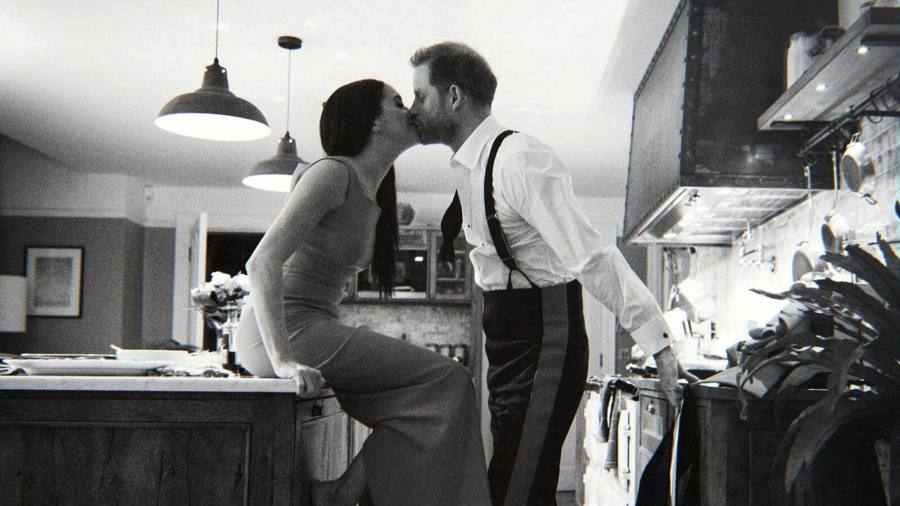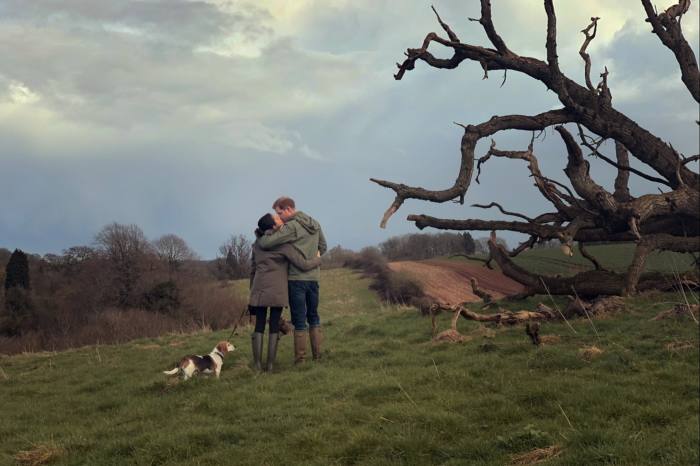
Strangely, the emotion flowing around Britain’s royal family today might be relief. If King Charles and Prince William were to watch the second half of Harry and Meghan’s Netflix documentary series — they have vowed not to — they would probably find little to make them hurl their porcelain teacups at the butler.
The last three episodes of Harry & Meghan, which became available on Thursday, are marginally more gripping than the first three, which arrived last week in a blaze of publicity. But they ask as many questions about Netflix’s penchant for soft documentaries as they do about the British royal family.
Harry, the Duke of Sussex, accuses his older brother of reneging on a deal that they made years ago, not to allow their offices to feud. William, for example, issued a press release in his and Harry’s name denying reports that he (William) had bullied Meghan out of Britain. One of William’s aides also gave a statement in Meghan’s court case against the publisher of the Mail on Sunday newspaper, which the Sussexes viewed as calculated and unhelpful. These are not the kind of things that bring down a thousand-year monarchy, largely because they concern the mechanics of media relations that are unfamiliar to most viewers.
Harry also describes a family meeting about his desire to change his royal role. “It was terrifying to have my brother scream and shout at me, and my father say things that simply weren’t true, and my grandmother [the late Queen] quietly sit there,” he says. That sounds less like personal trauma, and more like millions of Christmas lunches across Britain.
One persistent problem is that the documentary, co-produced by Harry and Meghan’s own company, Archewell, pries less than even the most fawning journalist would. We hear that after the couple’s interview with Oprah Winfrey aired, Harry received a text from William but he does not show it to the camera. The idea that Harry and Meghan were completely naive about how the media work is never questioned. This is the Sussexes’ side of the story — their truth — and that seems incompatible with journalism. It’s clear why famous people agree to do such documentaries (Meghan and Harry’s Netflix deal has been reported as worth $100mn), but it’s unclear that audiences will keep watching them.
The second problem is the apparent emptiness of Harry and Meghan’s existence. It is, of course, true that they were treated terribly by the tabloid media. Meghan says it pushed her to consider suicide. “All of this will stop if I’m not here,” she recalls thinking. Later she movingly describes how this fed constant online abuse. “You’re making people want to kill me . . . Are my babies safe?” Harry also says that he believes Meghan’s miscarriage was brought about by a legal battle with the Mail on Sunday, although NHS advice is that stress does not contribute to miscarriage. (Meghan ultimately won the case.) We see the couple doing guided meditation and being told that the press’s world is an illusion. They will need such tactics: after last week’s episodes, 15 of the top 16 stories on MailOnline were about them.
But, apart from fighting this media coverage, what do Harry and Meghan do? Harry, 38, is no longer a soldier. Meghan, 41, is not a working actor. This is a shame because they were both good at those jobs. They do have some charitable initiatives. But mainly, it seems, they are in love. In this documentary, their lives — at first in the UK, then in Canada, then, after Buckingham Palace withdraws their security, in California — revolve around family.
We see endless clips of their son, Archie, and his sister, Lilibet. Parenting is all well and good, but it does not make Meghan and Harry notable. The royal family is arguably just as empty — a mixture of meet-and-greets, fashion shows, and photo shoots. But it is cloaked in mystery and an idea of service.
This series is not an embarrassment for the Windsors, unlike the 1987 TV game show It’s a Royal Knockout. Nonetheless, it majors in clunky lines like “My entire centre was rocked to its core” (Meghan) and “This was a fight worth fighting for” (Harry). Viewers may feel, after six hours in their company, that the couple spend too much time talking about themselves.
On Netflix now
